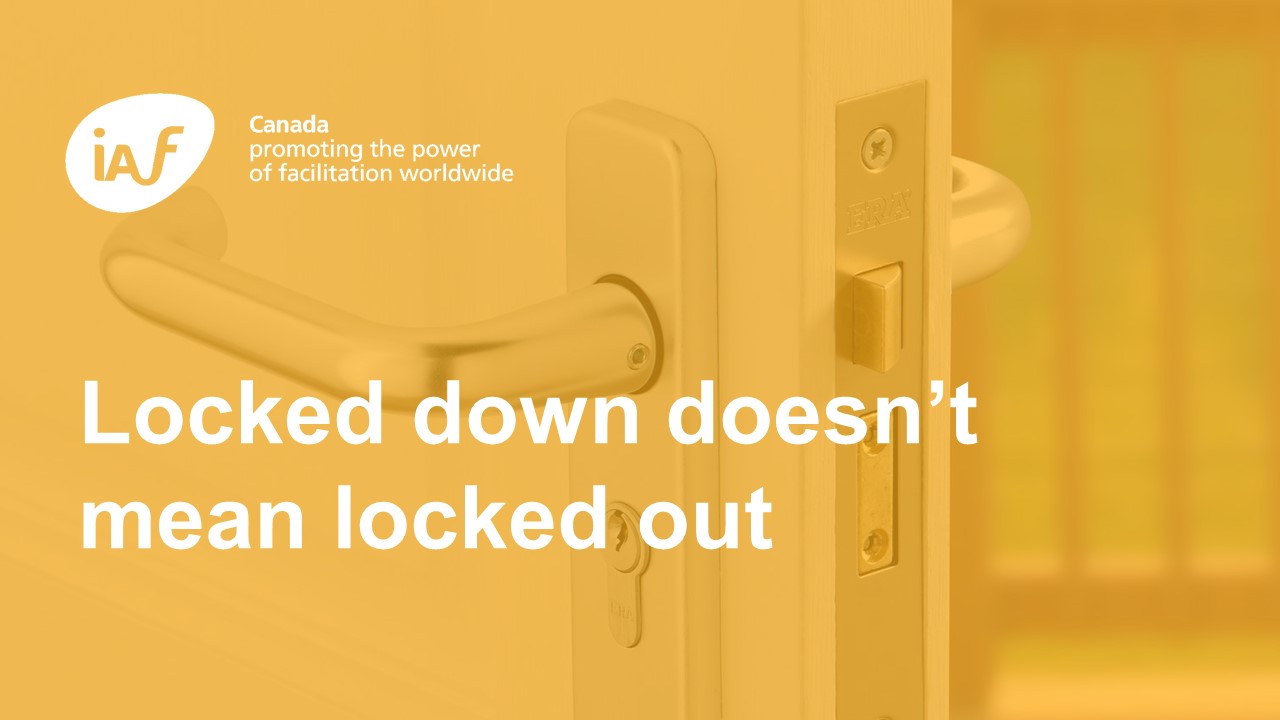Global Flipchart #19
September 2020
Make sure locked down doesn't mean locked out

By Lise Hebabi
Has COVID-19 disrupted your work? Have you had to learn how to facilitate online to survive? The lock-down resulting from the epidemic has had a major impact on how we do our work as facilitators. Just as importantly, it has had a major impact on our potential participants.
Those of us who own computers and work on them as a matter of course have only gradually become aware of the horribly isolating effect of the lock-down on people who are less “technologically enabled”. People who don’t own, and can’t afford, a computer. People who don’t have an internet connection. People who are blind or have a hearing impairment. People who have never used web conferencing.
As facilitators, because we can no longer see participants until they are online and on video, it is easy to ignore or forget all the barriers that may be keeping them from engaging online.
This puts an added burden on us to understand and address the needs of our future participants as part of our design and preparation work. Creating a welcoming and inclusive space is just as important online as it is in person – it’s just different.
Here are some ideas I’ve had to help maximize participation in online sessions:
- Find out about technical capability, either through interviews or a short online survey depending on the situation and your participant group. Questions can cover equipment, experience, comfort, constraints – can you think of anything else?
- Design with audio-only participants in mind: in an ideal world, everyone would be fully present with all the technology enablers, but we cannot assume that to be the case.
- Think carefully about adding other technologies, such as an online whiteboard, to your session. While these can be powerful tools in the right circumstances, they can be a source of exclusion for some participants.
- Offer a pre-session orientation and practice to help people familiarize themselves with the technology you will be using, and to work out any issues before you go live.
- Consider using a buddy or micro-team system where people can support each other in participating, with one person taking the “pen” for contributing content on behalf of their team.
What about you? What are your suggestions to ensure that people are not locked out during lock-down?